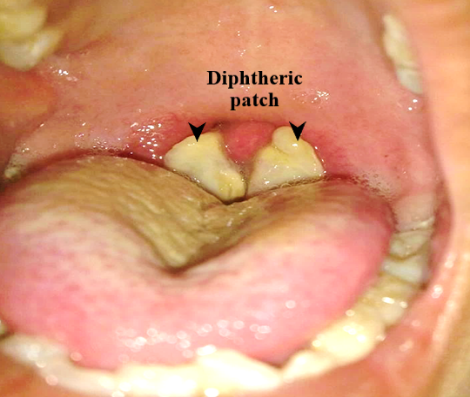
The Nigeria Centre for Disease and Prevention Control (NCDC) has revealed that diphtheria sufferers aged between 1 and 14 account for 75.1 per cent of those who are infected by the condition.
The director-general of the NCDC, Dr. Ifedayo Adetifa delivered this update during the diphtheria national briefing held today (October 19, 2023) in Abuja.
Adetifa expressed deep appreciation to the dedicated public health workforce for their unwavering commitment to preventing and responding to the outbreak, despite numerous challenges.
“As of October 19, 2023, the reported suspected cases of diphtheria have reached a concerning number of 15,060, with 9,478 cases confirmed across 137 local government areas in 20 states, including the Federal Capital Territory,” he said.
Adetifa provided a state-by-state breakdown, revealing that Kano has reported the highest number of cases, with 7,747 cases, followed by Yobe with 841 cases.
Of uttermost concern is the fact that a significant majority of confirmed cases, accounting for 71.5 per cent, fall within the 1-14 years age group, with infants constituting less than one per cent of the cases. It is also disheartening to note that nearly 60 per cent of these confirmed cases had not received adequate vaccination against diphtheria, being either unvaccinated or partially vaccinated.
In response to this outbreak, the NCDC has deployed national rapid response teams (NRRTs) to the affected states, providing on-site surveillance and response support. However, Adetifa lamented that security challenges have limited access to certain locations within affected local government areas.
He also highlighted the pivotal role played by the laboratory network, which has conducted preliminary and confirmatory testing at both sub-national and national levels. Presently, there are 18 laboratories in the Diphtheria Laboratory Network spanning 13 states, with ongoing optimisation efforts in Jigawa and Zamfara states. The NCDC has additionally provided training and technical support to laboratory personnel in various states.
Adetifa emphasised that risk communication and community engagement have been top priorities in addressing the outbreak. The NCDC has collaborated with partners to develop and disseminate public health advisories on diphtheria, as well as materials for social behavioural change. Various means, such as regular media engagements, school interactions, and social media monitoring, are being employed to increase awareness and counteract misinformation.
Regarding case management, standard operating procedures for diphtheria antitoxin (DAT) usage in health facilities and treatment centres have been formulated and disseminated. Diphtheria treatment centres/wards have been established in affected states and the availability of DAT and IV erythromycin has notably reduced the case fatality rate.
Adetifa advised Nigerians to be vigilant and recognise the signs and symptoms of diphtheria, including fever, runny nose, sore throat, cough and red eyes. Timely presentation to healthcare facilities or designated diphtheria treatment centres is strongly encouraged for individuals displaying suggestive symptoms. He also stressed the importance of vaccination with the Pentavalent or TD vaccine as the most effective protection against diphtheria, with the Federal Government offering free vaccines at all primary healthcare centers nationwide.
Adetifa urged Nigerians to refrain from sharing unverified information and to rely on official government channels for accurate and verified information. He noted that the ongoing vaccination campaign in all states presents an opportunity for parents and caregivers to ensure their children aged 0-14 years receive the necessary vaccinations.
Earlier, the chief of health, who represented the UNICEF country representative in Nigeria, Dr. Edwardo Celades expressed gratitude for the dedicated responders and healthcare workers who have tirelessly worked to treat patients, conduct surveillance, perform laboratory tests and administer vaccinations. He highlighted remarkable achievements, including the vaccination of over 3.2 million children and the treatment of over 6.5 million children in a relatively short period.
Celades attributed this success to the leadership of organisations such as the NCDC, NPHCDA, and the Federal Ministry of Health, as well as the unwavering commitment of frontline workers. He underscored the collective commitment of all stakeholders to overcome the outbreak, regardless of the challenges they may encounter.

